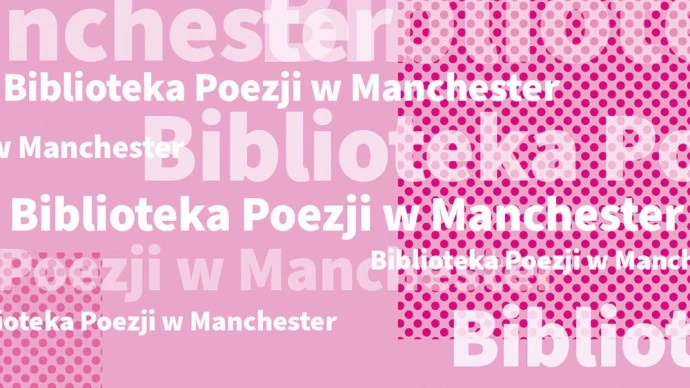
Languages Collection
Explore our collection of Manchester community languages and poetry in translation.
Languages Collection
Our collection contains books in a wide range of languages to borrow and recordings to listen to in the space. We currently hold poetry in Manchester’s community languages and historically underrepresented languages. Our Arabic, Chinese, Imazighen, Polish and Spanish collections have been co-curated by bilingual and multilingual poets. Our languages collection is continually growing, and we welcome your suggestions of what we can add to our collection.
We are home to Made in Manchester, a living poem with verses in 74 languages and counting. New submissions are always welcomed and you can submit a poem online.
Polish Poetry
The Polish poetry collection began with the Radość Pisania: Manchester Polish Poetry Festival in 2018. The festival was curated by Manchester Writing School alumnus Mark Pajak in response to a creative residency in Krakow, UNESCO City of Literature. Poet Bohdan Piasecki read at the festival and developed our current Polish poetry holdings. These include the works of Maria Pawlikowska-Jasnorzewska who’s buried at Manchester’s Southern Cemetery.
Maria Pawlikowska-Jasnorzewska, she’s a legend in Poland and she’s waiting to be discovered by the English-speaking world.
Basia Howard, translator
Chinese Poetry
Chinese languages are amongst the most widely-spoken in Manchester. There has been a Chinese community in Manchester in 1851 and the Manchester Chinese Community Archive, led by the Manchester Chinese Centre, is held at Central Library. Our current collection of Chinese poetry was curated by poet Jennifer Lee Tsai in 2021.
It was an honour to curate the new collection of Chinese language poetry for Manchester Poetry Library. The collection is intended to be extensive and eclectic, incorporating a range of selections from ancient and traditional classical Chinese texts as well as titles from recent collections of contemporary Chinese poetry. The aim was to make the collection both accessible and diverse, and to provide something of interest for all readers and users of the poetry library, whether it was for pleasure, enjoyment, curiosity, inspiration or scholarly or academic research. I hope that the collection offers something for everyone
Jennifer Lee Tsai
French and Imazighen Poetry
This collection was curated by poet and artist Lydia Hounat in 2022.
Imazighen poetry has been a long-time oral tradition for thousands of years. Even now, this poetry continues to resist paper or any other physical medium - it only relies on voice. For this reason, I have included numerous albums from some of the Maghreb’s most powerful and renowned Imazighen voices. I grew up with the tapes from Hadda Ouakki, Lounès Matoub, and Idir. My father would drive me to Arabic school in Chorlton, playing Enrico Macias’s Adieu Mon Pays over and over. I clung to my aunts as a child, at weddings in Algiers, whilst singers like Chérifa ululated from the speakers.
Lydia Hounat
Urdu Poetry
Urdu is one of the largest community languages spoken in Manchester, and Urdu books are the most borrowed books from Manchester libraries in a language other than English. Urdu has an incredibly vast and rich poetic heritage. It was Anjum Malik, Lecturer in Creative Writing (Script and Poetry) at the Manchester Writing School, who first introduced us to the idea of a mushaira, a traditional poetry gathering at which Urdu poetry is read, sung and recited.
Manchester is probably one of the most diverse cities in the world in terms of the languages spoken in the city. There’s about 200 languages spoken here. We need to reflect that diversity, especially in terms of literature and the arts. So, doing a poetry recital, mushaira, in Urdu is a very traditional thing, it’s very very popular, and we wanted to bring some of that into the mainstream, into the heart of the university. Audiences that never come to the university come to the university. And university audiences that never ever go to a mushaira get to see one, an Urdu recital. To have the kind of fusion of culture, the kind of understanding of someone else’s perspective of art and poetry…tonight’s been amazing. To see people who’ve never heard an Urdu poem before and in some cases we didn’t even offer a translation so you can get the music of the poem and in fact there was some singing! So, the universality of poetry, that’s what I think tonight is about. Even though it’s in a different language it speaks in all tongues.
Zahid Hussain, Chair of Governors, Manchester City of Literature and founder of Manchester Muslim Writers, speaking at Mushaira (Urdu Poetry) at Manchester Metropolitan University 2018






